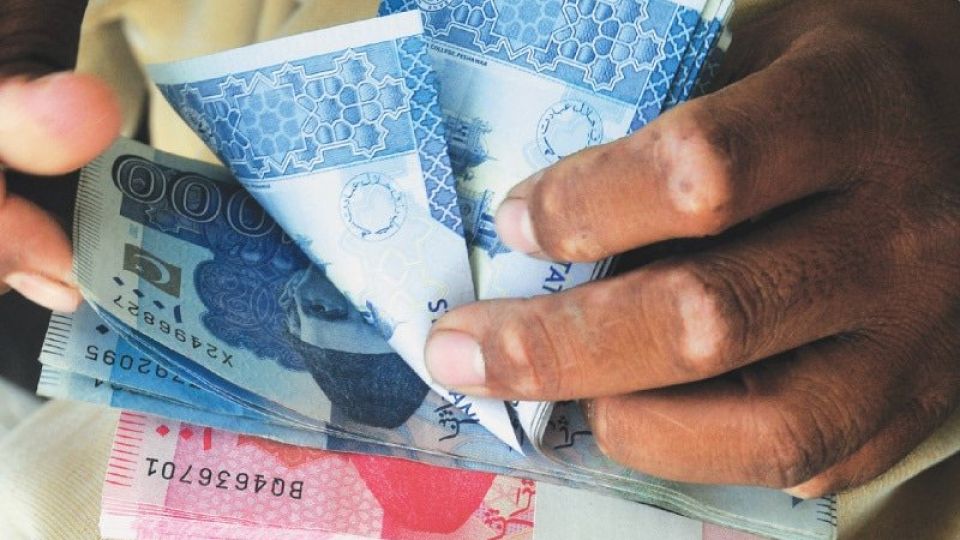May 26, 2023
WASHINGTON – Two prominent Pakistani American scholars — an economist and a political scientist — have warned that the national economy is near collapse and needs immediate course correction.
“To thump your chest and say, ‘see we have not defaulted’ means nothing if you continue to ignore the underlying crisis,” warned Atif Mian, a professor of economics, public policy and finance at Princeton University. “The only thing worse than indecisiveness in the face of a crisis is incompetence.”
Shuja Nawaz, a scholar whose books on the Pakistan army are widely admired, warned that the current political crisis “has already weakened the economy and destroyed public trust.”
The crisis “has destroyed trust in Pakistan as a site for investment by other countries and even by overseas Pakistanis,” he added.
In a series of tweets on Wednesday, Mr Mian compared Pakistan with two other countries — Sri Lanka and Ghana — that have also been facing economic crises.
A 🧵comparing Ghana, Sri Lanka and Pakistan, and what it teaches us about dealing with crises …
Ghana and Sri Lanka formally defaulted during the last two years, Pakistan did not
but currency devalued by 1/2 for both Pakistan and Ghana, and 1/3rd for Sri Lanka
— Atif Mian (@AtifRMian) May 24, 2023
He pointed out that both Ghana and Sri Lanka have defaulted during the last two years, Pakistan did not but its currency devalued by 1/2, as did Ghana’s. Sri Lanka’s currency devalued by 1/3rd.
The Pakistani currency, he noted, has devalued significantly more than Sri Lanka’s.
A 🧵comparing Ghana, Sri Lanka and Pakistan, and what it teaches us about dealing with crises …
Ghana and Sri Lanka formally defaulted during the last two years, Pakistan did not
but currency devalued by 1/2 for both Pakistan and Ghana, and 1/3rd for Sri Lanka
— Atif Mian (@AtifRMian) May 24, 2023
Comparing Pakistan’s trajectory with that of Sri Lanka and Ghana after they default, Mr Mian pointed out that both Ghanaian and Sri Lankan currencies have stabilised post-default as they entered restructuring programmes.
Pakistan’s, however, continued its downward trajectory over the two years, and “it continues to go down” and “there is no end in sight.”
And here is Ghana
Notice how both Ghana and SL currencies have stabilized post-default as they entered restructuring programs pic.twitter.com/V3VGWk1Xki
— Atif Mian (@AtifRMian) May 24, 2023
What’s the lesson? Giving one example of this downward trajectory, the prof noted that Pakistan was selling petrol at a price that is 20pc-25pc below the price it’s sold in Ghana, Sri Lanka, India, or Bangladesh. At the same time, the Pakistani government was restricting imports of raw materials needed for production and export, he added.
“In other words, the government would rather cut the country’s GDP in order to sell cheap petrol!” But he warned that lower GDP “will make it more difficult to pay off the debt — leading to more devaluation – more misery – and higher petrol prices in terms of purchasing power.”
This, he said, was just one example of the nonsensical policy choices being made in all sectors.
Mr Mian argued that addressing a balance of payments crisis required that “a country acts decisively, restructures aggressively, and takes courageous decisions that demonstrate a clear break from the past.”
Mr Nawaz argued that the political crisis would continue to impact the economy as no side seemed interested in a compromise. “Given the publicly visible differences between the PTI leader and the army chief, it seems unlikely that a compromise will emerge, especially if Imran Khan reaches out to dissidents in the armed forces,” he warned.
Mr Nawaz also said that the so-called minus-one formula would not improve the situation either as Imran Khan remained popular.
“One scenario that my work is a negotiated big tent coalition with an open and accountable government comprised of different parties,” he said.
“But for this to happen, it would have to emerge through the electoral process, not by diktat, by following the constitution, not bypassing it.”


